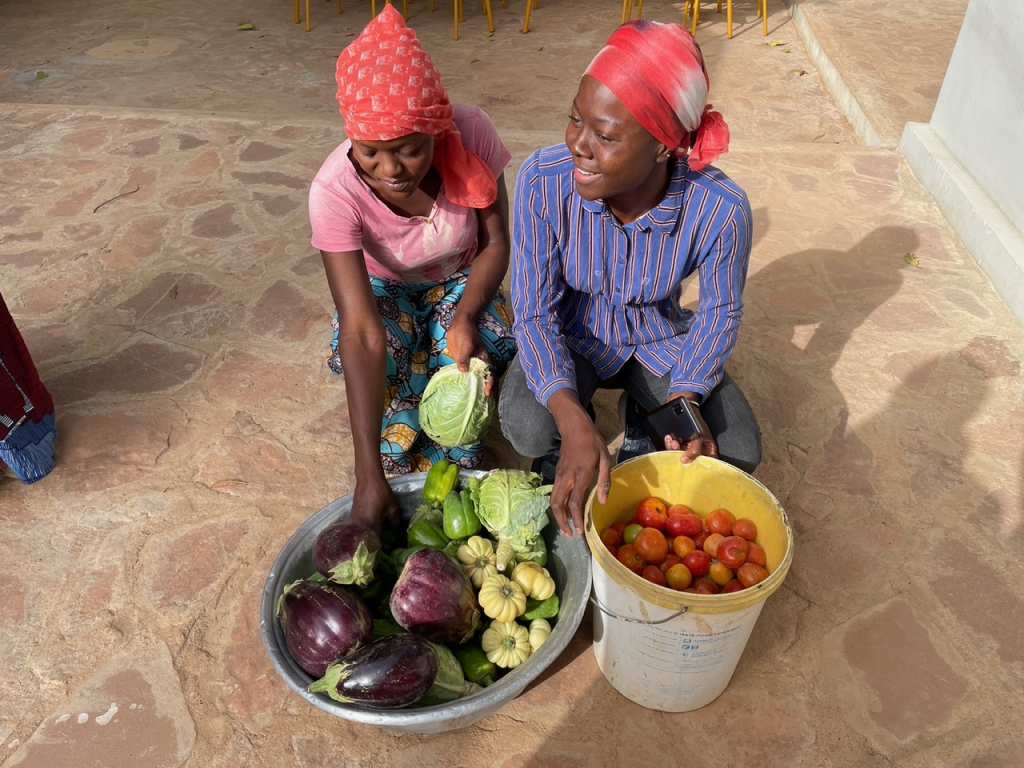The CAAS aims to become a long-term reference for practical, organic agricultural training for girls and young women in Mali and West Africa. At the same time, it tests and promotes new forms of small-scale gardening and farming, livestock and poultry rearing, as well as small-scale food processing. Sustainability is understood in a comprehensive way: in vocational training, the promotion of girls and young women, the establishment of viable local economic cycles, and ecology.
At the core is the agricultural production and training operation. It is designed to stimulate local agricultural production both qualitatively and quantitatively. Processing and preservation of food help mitigate seasonal overproduction, price drops, and harvest losses. Practical training includes methods such as drying tomatoes and okra, processing cassava into attiéké, gari, and starch, producing peanut paste or oil, and making juices from lemons and oranges. This increases value creation, employment, and income in the region.

For CAAS, sustainability also means keeping costs low and prioritizing quality. All buildings and facilities follow the principle: “No shortcuts.” Solid foundations, roofs, windows, wiring, and installations ensure easy maintenance, durability, and low follow-up costs.
A key aspect is the ecological added value: soil improvement, compost use, and farming adapted to the traditional Zaï method – with humus-filled pits that retain rainwater and improve soil fertility – turn previously barren land into lush green spaces. Gardening and the provision of solar electricity to the village generate not only yields and income but also tangible prospects for a livable environment.
The specific circumstances in Mali make practical training demanding: the model farm had to be established first, and the students require accommodation and meals, often also medical care and basic equipment such as clothing and shoes. Since neither they nor their families have sufficient means, financing these necessities is a core task of the CAAS.
The Klaus Tschira Foundation supports the establishment of the center until 2027 with a special grant. In parallel, the CAAS is working to make its production operations economically viable. For the training program and complementary projects – such as reforestation and greening, village development, health education, and schools – the CAAS seeks long-term international funding, to be implemented in close collaboration with experienced, competent partners from the Sahel region.


